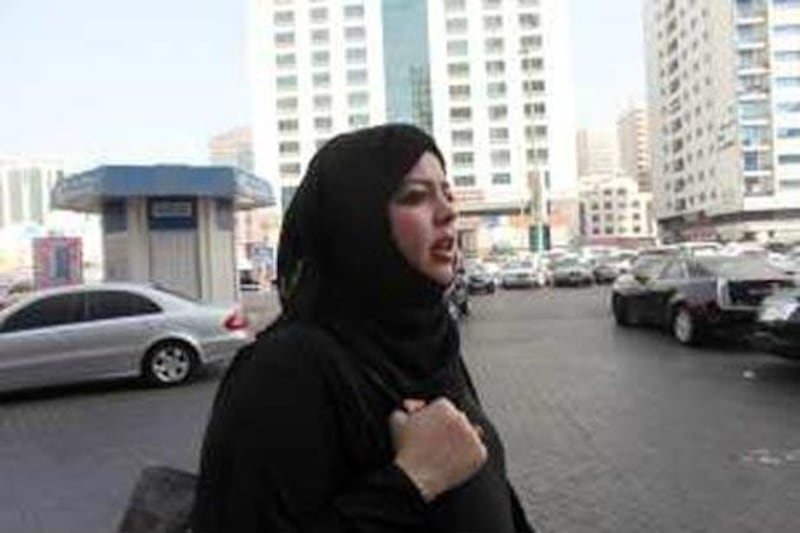ABU DHABI // The nation is beginning to exploit a precious natural resource. One that, unlike oil, will never be exhausted. The female workforce.
Emirati women have access to some of the best education in the world, and their minds are teeming with ideas that could advance the country. However, employers are not tapping into this resource as well as they might. According to government statistics 77 per cent of women go onto universities, and three quarters of university students are women. However this does not translate into the workplace: women make up only 25 per cent of the Emirati workforce.
A small study from the American University of Sharjah looked at the discrepancy between the number of women with post-secondary education in the country and the number of women who work in the UAE. "My study indicated that women are ready to go into the workforce but there is something that is holding them back," said Dr Meenaz Kassam, a professor in the department of international studies. The research studied the opinions of 68 Emiratis, aged 17 to 26, on the subject of women and empowerment. During a focus-group session several factors that keep women from working emerged. Some of the factors were societal, such as family pressure not to work in the public arena and concern that a working wife might imply that the husband cannot provide for the family.
However, many of the hurdles for women in the workforce come not from their families but from their employers. The research group identified lack of support for women to balance work and family, leading to many women never returning to the workplace after having children. They also thought that businesses preferred to hire people from overseas instead of local women. "When you ask women whether they'd like to work, they all say that they'd like to work once they leave university," Dr Kassam said. "Then they encounter the reality that women from good families don't do this. This rule is almost unspoken."
This is further complicated by the fact that many women marry around the same time that they graduate; they immediately have to balance family with job. "Women in the workplace is just a matter of time. There is a group of women who are ready, who can do it. But there has got to be parental approval and husband approval." That is true for Safia al Arzouqi, 37, an Emirati woman who works in the financial sector. Despite more than 14 years in the industry, she would likely stop working if she married. "Whether I quit will be my husband's decision," she said.
She said she would welcome childcare at work and the option of flexible hours or part-time employment because it would be more likely she could continue to work. "What bothers me the most is that people consider a woman who decides to leave the workforce to take care of her family as a sign of failure," said Sarah Shaw, 26. "Some might say that men can have the best of both worlds, that men can have a family but still manage to have a career. But the role of a mother is completely different."
Unlike many countries in the GCC, women in the UAE are not barred from any careers. But hurdles exist. "The barrier is the social aspect, from society or their family or the community that they live in," Ms Shaw said. This issue is further complicated by social-networking, which normally happens in the male majlises. Women might be told what was discussed by male relatives or fellow employees, but they are excluded from these informal meetings. "It is a cultural thing, Ms Shaw said.
Ms Shaw would like to see employer concessions such as the ability to work from home and flexible working hours. She believes such changes would benefit everyone in the workplace. "It is about men as well," said Dr May al Dabbagh, director of the gender and public programme at the Dubai School of Government. She said studies have indicated men can react positively to workplace change, as well. Women are more likely to continue working when they have support from their employer and their family to balance both sets of responsibilities. As the roles for women change, men will have to evaluate their new responsibilities as well.
"His ability to be involved with his family does not mean he is not masculine, but rather that he is being a good father," Dr al Dabbagh said. She added: "This is a new role for men but it is not something that diminishes them." amcmeans@thenational.ae






